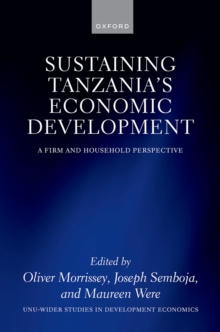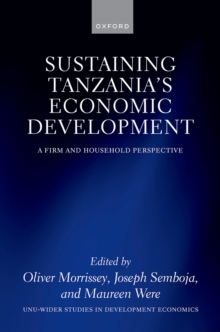
Achieving Development Success : Strategies and Lessons from the Developing World Hardback
Edited by Augustin K. (Deputy Director, UNU-WIDER) Fosu
Part of the WIDER Studies in Development Economics series
Hardback
Description
This book presents development strategies and lessons based on a large range of 'success' countries across the developing world.
In addition to the country cases, it presents regional and overall syntheses that cover orthodox vs. heterodox policies; the importance of capability, primary exports, diversification and financing; managing diversity; the role of institutions and governance; and human development. The book reveals much diversity in successful development strategies offered by the various select countries: for example, the 'disinterested-government' political economy of China; the democratically supported, high-service-sector development approach of India; the 'Washington-Consensus-based' reforms of Ghana and China; the diversification strategies of the United Arab Emirates (UAE), Bahrain and Oman; the dynamic orthodox-heterodox strategy of Malaysia and Vietnam; the effective natural-resource management of Botswana, Oman, Bahrain and the UAE; the social-sector underpinnings of development in Costa Rica and Tunisia; and the democratic political system of managing diversity in India.
This refreshing approach to studying development will interest researchers, teachers, students, development practitioners and policymakers alike.
Information
-
Out of stock
- Format:Hardback
- Pages:560 pages, 83 Figures, 78 Tables
- Publisher:Oxford University Press
- Publication Date:14/03/2013
- Category:
- ISBN:9780199671557
Information
-
Out of stock
- Format:Hardback
- Pages:560 pages, 83 Figures, 78 Tables
- Publisher:Oxford University Press
- Publication Date:14/03/2013
- Category:
- ISBN:9780199671557










